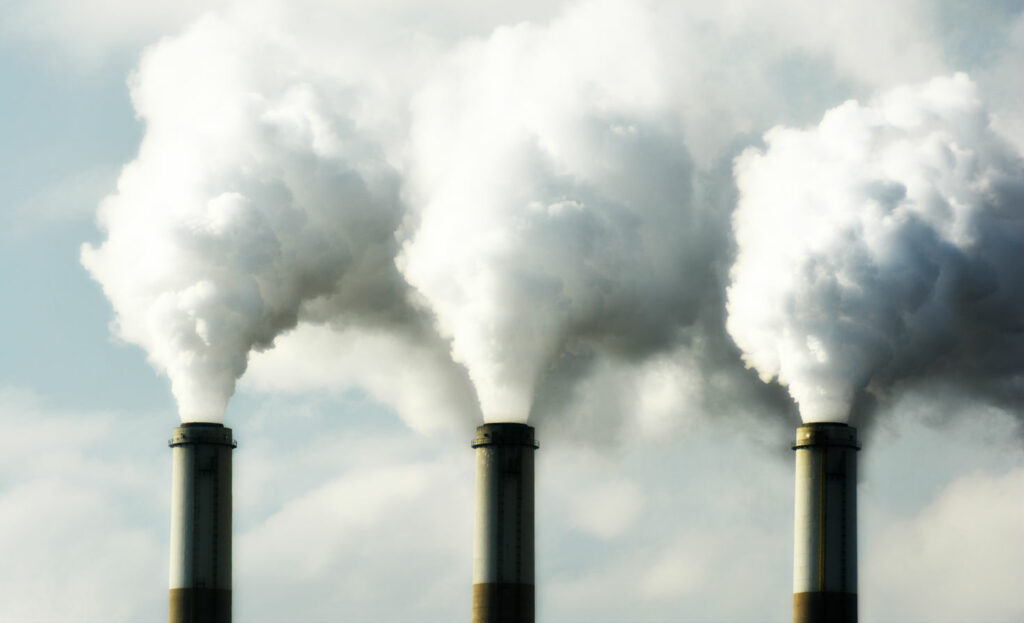“Stop!” shouts Terry Corcoran in the Financial Post, saying all the “green economy” hype basically repeats the “Broken Window Fallacy” Frederic Bastiat smashed in his 1850 essay that inspired Henry Hazlitt’s 1944 Economics In One Lesson which is one more lesson than the “parade of corporate and political heavyweights, such as U.S. climate czar John Kerry” have had. As Corcoran writes, “In the parable, a boy smashes the window in a town shop, creating an expense and loss for the shopkeeper. But a bystander observes that there is an economic benefit to smashing windows: Glassmakers get more business, a conclusion glibly summarized in one commentary: ‘It’s a good thing to break windows — money gets circulated and the industry thrives.’” And so, Corcoran laments, this nonsense is even more prevalent in 2023 than in 1850 because now there actually are formal programs to go about breaking glass on a massive scale to enhance prosperity: “as governments in the Western world attempt to smash the windows of the energy system and replace it with an all-new net-zero energy regime.” And chortle about the opportunities they’re creating for glass-makers, freight carriers, window-installers, painters, and who knows what all? For instance Canary Media burbling “Chart: US climate law to spur thousands of new jobs in every state”.
As Corcoran growls, “The broken window fallacy in such thinking, if I can presume to condense Bastiat, is that the real cost of breaking windows is ignored.”
In some sense the Canary claim that “Each U.S. state could gain between 2,000 and 140,000 clean energy jobs by 2030 thanks to investments spurred by the Inflation Reduction Act, according to a new analysis by the think tank RMI” is a no-brainer. But we don’t mean it in a good way. They say that:
“RMI analyzed the amount of money that could be invested in the 48 contiguous U.S. states as consumers, manufacturers and other businesses take advantage of tax credits and rebates provided by the climate law.”
But quite apart from the fatuity of trying to figure out how much “could be invested” in the United States’ incredibly complex $23 trillion economy, if something is only profitable with subsidies it is another way of saying it is not profitable, which means it is worth less than it cost to make so this “investment” destroys wealth rather than creating it. Thus for David Wallace-Wells to snicker in the New York Times that “G.O.P. elites are simply lagging behind their states” because the Inflation Reduction Act offers subsidies so huge even Republicans will take the money is not proof that the climate zealots have won the debate or that they are boosting prosperity, just that far too few commentators understand the very basic economic point that you have to subtract the subsidy from the nominal profit to see if the thing actually benefited society.
Heck no, he says. Rather:
“The Inflation Reduction Act is a spigot of spending designed to produce a decarbonization boom — indeed, while it is often described as a $370 billion piece of legislation, that analysis seems likely to significantly underestimate the ultimate size of its tax incentives, which could stretch much closer to $1 trillion with rapid renewable development.”
To borrow from Adam Smith, since we’re taking a trip to the land of economic fundamentals, for a trillion dollars you could support a wine industry in Wales. But the net cost would be huge.
It may seem futile to seek to refine economic theory in the face of such persistent obtuseness. Including Clean Prosperity’s:
“The government could also look at strategic financial support for industries where Canada can compete globally and generate significant economic benefits, good jobs, and manufacturing value added. We point to direct air capture, sustainable aviation fuel, and the electric-vehicle value chain.”
Ooooh. Strategic. Sure beats the other kind of financial support where you hurl money out windows and hope it hits voters. But if “Canada” can compete globally, and we didn’t even know it was a company, then why in the name of all handouts does something that generates significant economic benefits and add value require a subsidy?
Having thus harrumphed we need to stress that Bastiat’s metaphor goes even deeper than Adam Smith’s pointed observation that those who clamour for government support in the national interest are by no means such fools as those who believe them. It actually is true that, once the window is broken, the process of making a new one in the marketplace is socially beneficial because it plugs the ugly gap in the store front, protecting the merchandise and sheltering customers and staff from inclement weather, something we already knew was worth the expense because the shop keeper previously incurred it to install the former window.
So yes, once the window has been broken, replacing it is economically rational including for the shopkeeper. But the cost incurred a second time, to replace the broken window, merely restores what was previously there, so the shopkeeper ends up poorer by the cost of replacing the window than they were before it was broken. So if something flattened all our power plants, we’d be better off after we replaced them (if we replaced them with something that worked) than if we didn’t. But we would be worse off than we were before they got flattened.
The whole Green New Deal, Just Transition, Energiewende and all its ignorant destructive cousins around the world miss this key insight. They are not proposals to make us better off, they are proposals to vandalise the economy then incur costs repairing it. They include the vandalism as a feature not a bug, and hope to get us back to where we were (though as we’ve made clear elsewhere we have grave doubts about the enormous engineering obstacles to generating enough power with wind and solar let alone distributing it) with the entire cost of the replacement a net loss.
If proponents of the “energy transition” understood this point, and insisted that it was actually beneficial to smash the old window anyway because it refracted light in such a way that it would necessarily set the shop on fire, we could engage them in rational discussion. But as long as they babble that it’s all gain, that “It’s a good thing to blow up power plants” it is not possible to talk sense with them, just at them.
They do babble it, in forum after forum. For instance The Economist with its headline “Saving the rainforests would be a bargain/ Far more money is needed to make conservation more profitable than slash and burn”. Um no. If it’s a “bargain”, it requires less money than other deals on the table.
The people at The Economist are not quite the economic illiterates their like-minded fellows at most other publications seem to be. They actually claim that:
“Profits from chopping down rainforests are surprisingly meagre. The land is not particularly fertile. A freshly cleared hectare of the Amazon fetches an average price of only around $1,200. By contrast, the social costs of clearing it are immense. Some 500 tonnes of carbon dioxide are pumped into the atmosphere. By a conservative estimate, that does $25,000 of harm by accelerating climate change.”
So they are making a version of the argument that the existing window, while seeming to provide shelter, entice customers and so on, actually is going to ignite the merchandise and the occupants. It’s just that their $25,000 number is highly suspicious despite bearing the PR-friendly label “conservative”. Others are not even that lucid.
In something called The Liberal Patriot, another in a long weary line of attempts to make modern progressive thought rational and palatable to normal people, Brian Katulis writes that what really concerns normal people is economic security. Thus, he notes:
“During his first two years in office, President Joe Biden introduced three pieces of legislation totaling at least $2 trillion of public investments in high-tech and clean energy aimed at re-making America’s economy…. it will require a strong focus on implementation and clear arguments for how these measures are making the lives of working-class Americans better. Advancing a clear argument on this front will be make-or-break for Biden’s re-election chances.”
He then takes a fairly level-headed look at the implementation challenges and the risks of the mercantilist “Buy American” provisions of the IRA. But when he gets off onto “a public communications strategy that convinces the American public about the value of these investments and how they are improving their lives in tangible ways” he misses the point. Scrapping America’s energy infrastructure then spending trillions to get back to the same level of production will leave the nation as a whole poorer.
Katulis says “The story is simple. No place in America will be left behind.” But the simple story is that Bastiat had it right. If you break every window in America then replace them all, the nation will be better off with fixed windows than with broken ones. But it cannot be better off than before the windows were broken because fixing them all only restores the benefits of having the original windows, but all the labour and raw material required to replace them is gone for good.
As for the guff about job creation, as Hazlitt said, if you want to make work ban trucks and require goods to be transported on people’s backs, and ban power tools and force them to dig with hand shovels. They will be poorer not despite there being more work, but because it now takes more work to get anything. It is incredible that such things must be explained again in 2023. But if we have forgotten Bastiat and Smith, there is nothing we have not forgotten.



Could we have a reference for where the Economist claimed that a tonne of CO2 causes $500 damage - by a conservative estimate mind you, surely it must really be at least $1,000 a tonne. Every tonne of concrete that costs me about $400 delivered creates about 420kg of CO2. It must be a serious thing pouring all those concrete footings and access roads for these wind turbines to save the planet without realising how much damage is being done. Even more for off-shore wind.
Glass manufacturing requires 1000C+ furnaces. S/W energy cannot supply those needs.
Economics in one sentence: "Wealth is created when, and only when, resources (including labour resources) are shifted from lesser-valued to higher-valued uses."
I love this line: "Ooooh. Strategic. Sure beats the other kind of financial support where you hurl money out windows and hope it hits voters."
The capital destruction that is currently taking place in Canada is astounding. Electric vehicle, and battery manufacturing plants that require massive government subsidies, supplied by taxpayers to support a vision of the federal government. As questioned by others in the past "What could go wrong?".
Yes you are so right. These things only last 20-25 years. This work will go on for ever, at ever accelerating pace.